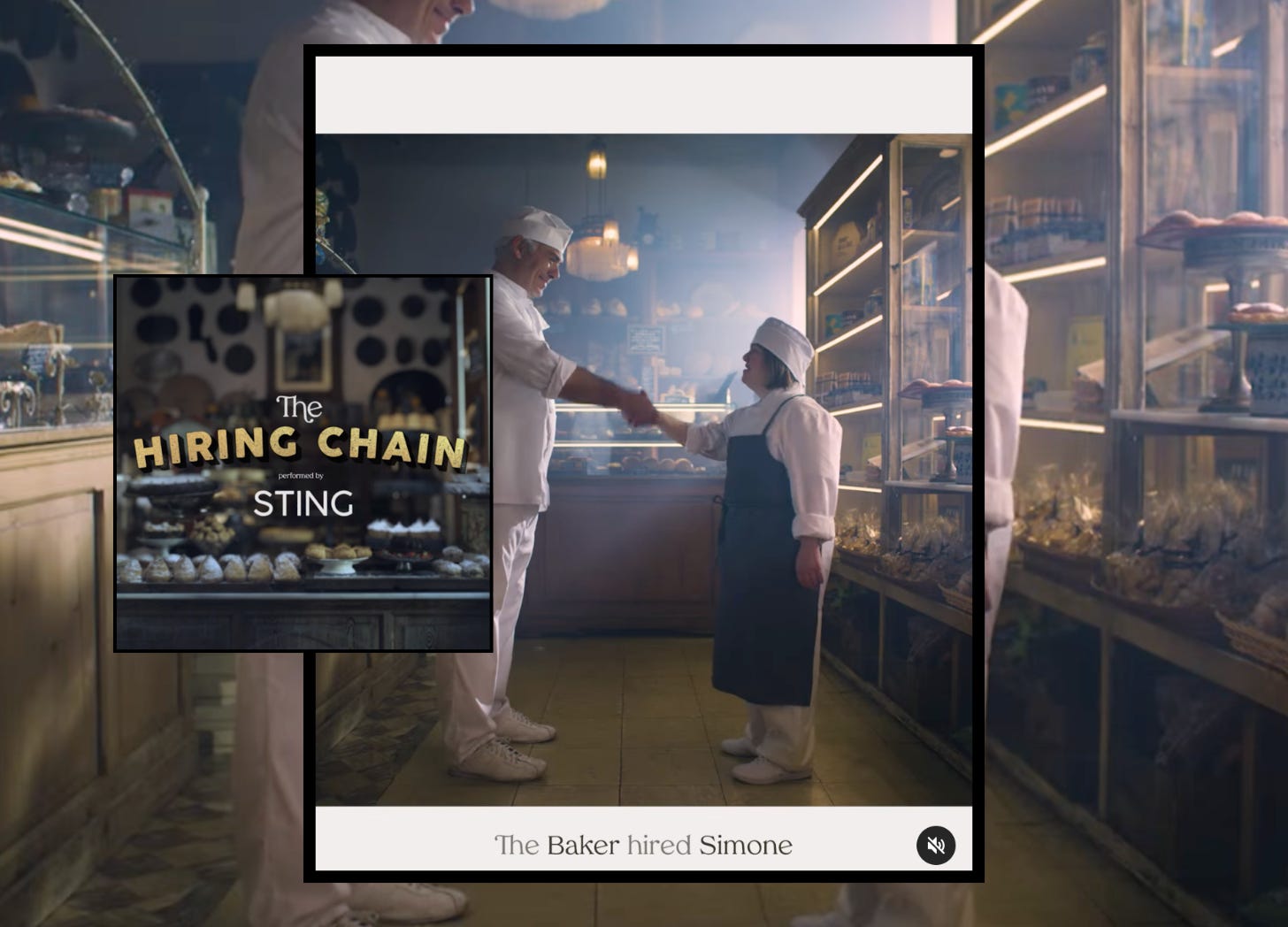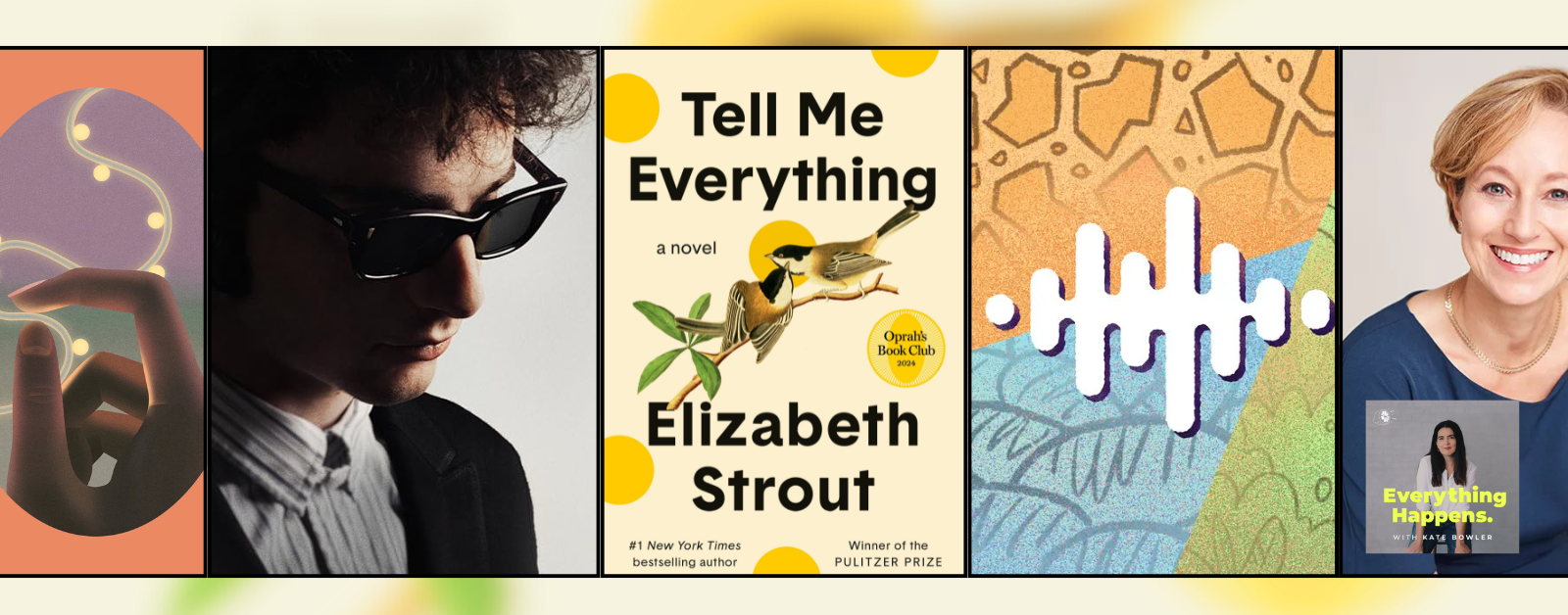Favorite books, essays, podcasts episodes, and more that I enjoyed in the month of May, plus recent cultural news that I’m paying attention to…
For Car Rides with Kids and Teens
My biggest recommendation this week is for anyone who finds themselves in the car a lot with kids (including teenagers) right now. We have returned to The Family Road Trip Trivia podcast, and we are totally enjoying some midwestern banter, reminders of Disney movies, and evidence of generational divides. I’m at that weird in-between place where our car rides might include talking about the war in Ukraine, working on the New York Times games, and—for the sake of trivia—trying to remember the name of the chameleon in Tangled (Pascal, in case you’re wondering).
SUBSTACK: Six Trends Threatening People with Disabilities
I’m grateful for Andrew Oliver’s concise and straightforward summary of the many ways recent government decisions will affect people with disabilities and our families. I also appreciate his conclusion:
“when all else is stripped away, when systems and institutions are stripped away, what remains are freely-given relationships.
It’s what we choose to do for one another on a person-to-person level, without waiting for permission or payment, that truly endures. These relationships are not just a pathway back to justice and an anchor to support us through uncertainty, but they are the only hope that enables us to avoid injustice in the first place. No matter what happens, our willingness to see, serve, and stand with one another is the clearest measure and greatest hope for a more humanizing approach to justice and mercy.”
VIDEO: The Hiring Chain

We hope that Penny will get to be a part of this chain.
ESSAYS
ESSAY: “Baby Is Healed With World’s First Personalized Gene-Editing Treatment”
Disability does not equal suffering, but there is often a lot of suffering associated with disability. Sometimes that suffering comes from the society that excludes and stigmatizes, and other times it comes from physical pain and mental distress caused by the disability itself. It is good to seek to alleviate suffering, whether that suffering comes as a result of social norms or physical/mental conditions. This essay offers a beautiful example of the way gene therapy can help alleviate suffering, promote flourishing, and prolong life.
ESSAY: “The ‘R-word,’ embraced by Joe Rogan and Elon Musk, inches back into the mainstream”
Here’s yet another post about the uptick in usage of the r-word. What’s most interesting (and perhaps upsetting) to me is the point she makes about how the use of the word is increasing on both sides of the political aisle. I guess the good news is that it is also being repudiated on both sides? Either way, choosing language with care is not about political correctness or policing speech. It’s about living with respect for the dignity and worth of others.
ESSAY: “There Are Ways to Die With Dignity, but Not Like This”
Ethicist and doctor Lydia Dugdale explains why medical assistance in dying, at least as currently proposed, harms vulnerable people:
“This is not a compassionate policy — not in Canada, not in Oregon and not, should the bill become law, in New York. Instead of investing in the infrastructure of support for the lonely, the depressed, the disabled and the poor, we offer them a prescription for death. We call it autonomy, but it’s abandonment.”
ESSAY: “In Trump’s America, All Parents and Children for Themselves”
I’ve been trying to organize my thoughts about the problems and injustices embedded within dismantling the Department of Education. Pepper Stetler does a better job explaining it than I could:
“Without a fully functioning Department of Education, states will not be held accountable for meeting even the minimum requirements of IDEA, and this landmark piece of legislation risks becoming essentially toothless, save for civil litigation. We will see an erosion of the promise of a free and appropriate public education for students with disabilities and fewer ways for parents and advocates to do anything about it.”
STUDY: Measuring the Good Life
I’m so fascinated by the human flourishing study out of Harvard and Baylor, particularly when it comes to the factors that make up a “good life.” The data suggests that “economically developed countries have high average scores for self-rated financial well-being, access to education, and life evaluation. Yet poorer countries have higher scores for positive emotions, meaning and purpose, character and virtue, and social connection and relationships.” In other words, money doesn’t buy happiness, and it certainly doesn’t buy connection. Moreover, the data suggests that
“countries with the greatest wealth and longevity may have achieved these goods at the cost of a fulfilling life… for most people, flourishing is found above all in dense and overlapping networks of loving relationships.”
BOOKS
NOVEL: You Are Here by David Nicholls
NOVEL: Tell Me Everything by Elizabeth Strout
This novel is my favorite of Strout’s that I’ve read so far, telling the story of very ordinary people living ordinary lives of care and selfishness and love and pain in a lovely but also rather ordinary town in Maine.
BOOK: The Gardener and the Carpenter by Alison Gopnik
The premise of this book is simple: parents aren’t carpenters who construct their children into finished and predictable products. Rather, we are gardeners who help create conditions for ongoing growth and flourishing that is unpredictable and beautiful and based on love. Despite the simplicity, Gopnik does a wonderful job of exploring why it matters that we behave as gardeners, not carpenters, how we can change our approach to being a parent (she doesn’t believe in using parent as a verb), and how our entire society needs a reorientation if we are going to thrive.
MOVIES AND SHOWS
MOVIE: A Complete Unknown
Peter and I both loved this biopic about Bob Dylan’s early years in New York City as he rose to stardom and refused to be boxed in as an artist. I was reminded of the reasons Dylan won the Nobel Prize for literature, and it also made me wonder whether genius comes along with misanthropy by necessity.
PBS DOCUMENTARY: CHANGE, NOT CHARITY: THE AMERICANS WITH DISABILITIES ACT
PODCAST EPISODES
EPISODE: Lisa Damour: How to Talk to Teenagers
I sent this podcast episode to all my friends who are parents of or work with teenagers.
THE BIBLE PROJECT: The Seven Women Who Rescued Moses—and Israel
If you’ve ever wondered whether the Bible has a subversive message within a patriarchal culture about the significance of women, this podcast episode is for you. Such an amazing and powerful and encouraging exploration of the role of women in the Exodus story and throughout the Bible
EPISODE: A Community of the Narrow Way
I sent our kids this sermon about choosing the way of Jesus. It’s a beautiful and honest invitation to walk the narrow way to a spacious place (and it makes reference to Narnia, Greek mythology, and Harry Potter, thus my hope that our kids would listen too).
Get my favorites delivered to your inbox each month!
Subscribe here!
More Favorites and AJB Recommends
If you use a link from here to purchase something I recommend, it sometimes earns me a small commission, which enables me to continue the work I do here. So thank you! (As an Amazon Associate, I earn from qualifying purchases.)




This Post Has One Comment
Thank you so much for kindly sharing!